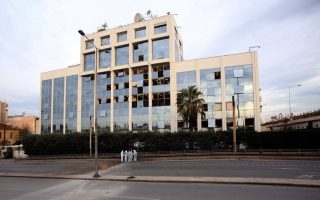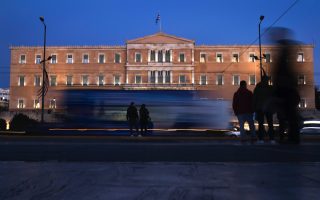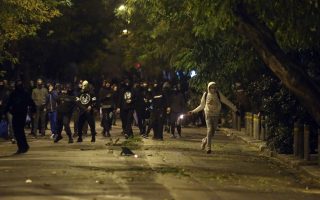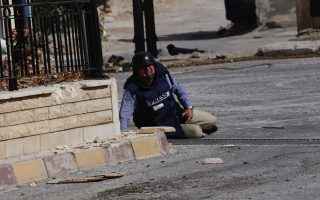Division and terrorism

Terrorism is an endemic phenomenon in Greece. It existed in various manifestations during and up until the end of the 19th century when politicians and political parties used the services of bandits and bullies against their adversaries; it blossomed during the national division in the 1910s; it grew further during and after the German occupation in World War II until the end of the civil war; and in the 1950s and 60s operated, when it was deemed necessary, under the protection of the police. Like all dictatorships, Greece’s 1967-74 junta exercised state terror.
After its demise, we saw the emergence of the form of terrorism we are still experiencing today: small gangs of self-proclaimed left-wing “punishers” who carry out executions and bombings in the belief that they are exacting revenge and fighting against the state and the system. And this at a time when Greece and its people are enjoying an unprecedented degree of democracy and freedom.
In no other country in Europe has domestic terrorism remained active for the past 45 years. Some countries have experienced outbreaks of domestic terrorism for short periods of time, but they were eventually controlled by the authorities. It is only in Greece – a country where secrets are not kept, where gossip is rampant and where there are no organizational skills – that so many terrorist groups keep emerging, in such rapid succession. It is like a seed that keeps producing new groups and that the counterterrorism services just cannot uproot.
Maybe its resilience is due to the fact that a large section of society is tolerant or indifferent to these groups or because parts of that section have been indoctrinated with ideological fixations, hatred, lies and falsehoods about the past by their families. Some of the responsibility may even lie with the state, which allows – and sometimes even encourages – rogue behavior that can under certain conditions mutate into something much more violent.
Many attribute the attack against Skai and Kathimerini to the divisive climate being cultivated by the coalition government of SYRIZA and Independent Greeks. This cannot be proved, at least for the time being. However, there is no doubt that Prime Minister Alexis Tsipras and his people have invested in division and in stoking tension among citizens, as is evident from their “us and them” rhetoric; from their attacks on media they cannot control and journalists or other individuals who annoy them with their criticism; from the judicial witch hunts they launch every so often; and even from their tax policy.
Condemnation of the attack by the prime minister and several government officials was immediate and correct, because this is what the world outside Greece expected of them. But the party’s heart was not in it – as they and other officials made abundantly clear. The argument that the government is attempting to create an atmosphere of civil strife may sound over the top, but when you get down to brass tacks, it’s not. Unfortunately, this is something that we can only determine with time.





